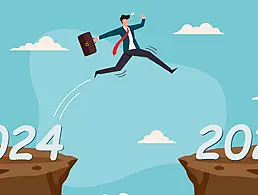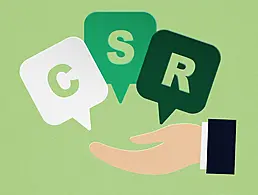As a jobseeker, it can be tough to know how to stand out from the competition. Luckily, Hays’ Nick Deligiannis is here to help you boost your CV.
Are you looking for a new job? If so, you’re not alone. How can you really make your CV shine bright among the rest? One of the best ways is to showcase your skills in a way that really speaks to the reader.
Why? Increasingly, employers are placing more importance on the skills a candidate has (and their subsequent potential), rather than their past job titles and experience. As Janelle Gale, Facebook’s vice-president of human resources puts it, “Skills really matter the most.”
Showcase your skills in technology on your CV
I’m sure at some point recently, you’ve read sensationalist headlines that a robot is going to take your job. And, while the impact of technology is undeniable, there is substantial research that technology such as artificial intelligence (AI) will actually create more jobs than it culls. As such, we will all soon (if we’re not already) need to start seeing technology as our co-workers or colleagues – each party needs to work with the other seamlessly to get the right results. As technology mentor Nadjia Yousif says in her recent TED Talk, “To work these days, you need to be able to work with technology.”
According to PwC, 78pc of CEOs regard AI competencies as the most important asset of a company. And, according to a report by LinkedIn, the most in-demand hard skills are cloud computing, artificial intelligence, analytical reasoning, people management and UX design. Therefore, regardless of your job or sector, being able to work in harmony with technology is quickly becoming a coveted skill. So, where possible, showcase your ability to do so via the skills and employment history sections of your CV. Don’t forget to evidence your data literacy and fluency – or, in other words, your ability to interpret and analyse data. When you really think about it, you probably have more skills in this area than you originally thought.
And if your tech, AI and big-data skills leave something to be desired, that’s OK. Ask your current employer about the training opportunities available at your company, or take it upon yourself to upskill in your own time – there are plenty of free training materials available online if you do some digging.
Demonstrate the strength of your soft skills on your CV
While the hard skills we’ve talked about above are always going to be important, as LinkedIn editor Dan Roth states, “you always have to have those soft skills, too. The soft skills are what enable you to change industries, change jobs, change positions …” In fact, 57pc of senior leaders say that soft skills are more important than hard skills.
Below is a summary of the most important soft skills I recommend you make a concerted effort to develop in the months to come, and show throughout the skills and employment history sections of your CV.
Creativity
LinkedIn announced earlier this year that creativity is the most in-demand soft skill out there. And, in my view, it’s not surprising. This quote from its blog puts it nicely: “While robots are great at optimising old ideas, organisations most need creative employees who can conceive the solutions of tomorrow.”
Demonstrating your creativity throughout your CV will essentially tell the reader that you are curious, will play a key role in problem-solving and will be instrumental in thinking of new ideas – all things that will ultimately future-proof the business and drive growth. So, detail successful ideas that you’ve implemented on your CV and be ready to talk through them during the interview process.
Key to building your creativity is dedicating consistent time to improving your knowledge and understanding. Always stay curious and anticipatory of the changes that are going on around you and have the confidence to air what you’ve observed with your team and the wider business. Take it upon yourself to listen to webinars and podcasts, watch TED Talks, read industry articles, analyse what the competition is doing and so forth. The more you work to build your foundation of knowledge, the better equipped you will be to propose the creative ideas that will really set you apart from the crowd.
Adaptability
As the Greek philosopher Heraclitus famously stated, “The only thing that is constant is change.” This statement couldn’t be truer in today’s world of work. Whether it’s changes in technology, people, processes or working patterns, one thing is for sure: all of us need to get better at dealing with change to succeed in the future. After all, “An adaptable mind is an essential tool for navigating today’s ever-changing world, as yesterday’s solutions won’t solve tomorrow’s problems.”
Can you think of a time in your previous roles where you had to adapt to a change? If so, add this to the employment history of your CV and be ready to discuss this during your interview.
Verbal communication
Increasingly, it’s the inherently human skills that employers are demanding more and more. And no skill is more human than verbal communication.
Despite all the technology around us, clear, effective verbal communication has never been more powerful or more important in today’s workplace. As Hays CEO Alistair Cox explains in a LinkedIn influencer blog, strong verbal communication can help us become more productive, collaborate better and build stronger relationships with others.
On your CV, highlight your strong verbal communication skills in the skills section such as public speaking, collaboration and negotiation. During the interview process, ensure you let your verbal communication skills shine when either sitting face to face with the interviewer or potentially speaking to them via a video link.
Refreshing your skills, refreshing your CV
We’re all living longer, and therefore it’s an undeniable fact that most will have no choice but to work well into our 70s and even 80s. The sheer amount of time we will all be working, and all the change that will take place within that time, means that all of us will need to make far more of a concerted effort to integrate lifelong learning into our everyday lives.
However, a key mistake many professionals make is that they simply forget to document all the new skills they’ve learned. So, whenever you learn a new skill, always remember to update both your CV and your LinkedIn profile, and add these keywords to your CV in way that will ensure it makes it past the algorithms and on to the shortlist.
Nick Deligiannis is the managing director of Hays in Australia and New Zealand. Prior to joining Hays in 1993, Deligiannis had a background in human resource management and marketing, and formal qualifications in psychology.
A version of this article originally appeared on Hays’ Viewpoint blog.




